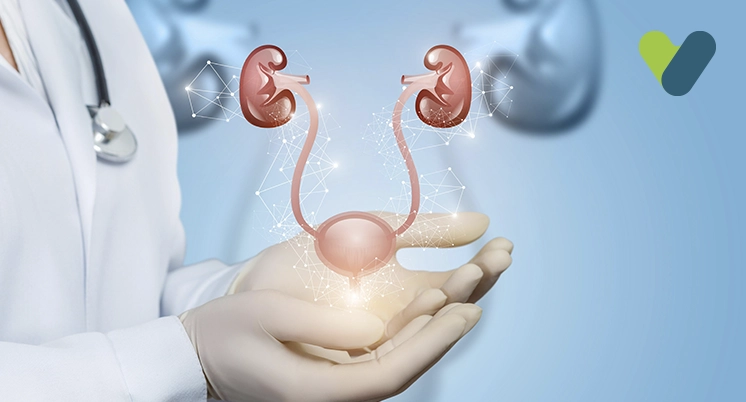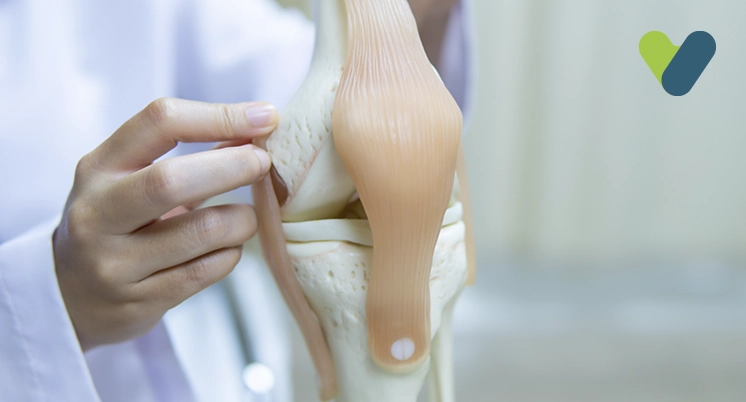Overview
An anal fistula is an unwanted tunnel or passage from the rectum or anus to the skin's surface surrounding the anus. The opening through which the body evacuates faeces is the anus.
- The fistula has two openings: external (on the skin) and internal (towards the anal canal).
- It usually develops due to infection and pus accumulation in the anal glands, which drain and form a fistula.
- Fistula is frequently confused with haemorrhoids or piles. Fistulas can be simple or complex in structure.
- Simple fistulas are caused by glandular obstruction, which results in an abscess. It has a solitary tract, is simple to detect and treat, has a low relapse rate, and has fewer complications. Surgical intervention is required.
- Complex fistulas are reoccurring fistulas that may have multiple tracts and are usually associated with disease conditions such as inflammatory rectum disease, Crohn's disease, or radiation.
The main goal of surgery is to close the fistula while at the same time protecting the anal sphincters (a ring of muscles responsible for controlling the opening and closure of the anus), which if damaged can cause bowel incontinence (loss of bowel control).
Surgical techniques used to treat anal fistula
Surgery is the mainstay of treatment for fistulas because its results are permanent. Depending on the position and extent of the fistula, various surgical procedures can be performed.Seton surgery and fistulotomy are the two primary surgical options for treating an anal fistula.
Seton technique
In cases where the fistula has multiple branches that run through the upper portion of the sphincter muscles, a seton stitch may be utilized by the surgeon. A seton refers to a surgical thread that is placed inside the fistula and left in place for a period of several weeks to ensure that it remains open to facilitate easy drainage of pus, thereby allowing the fistula to heal, but they are not cured with this. Tightened setons may be used to slowly cut through the fistula to successfully treat it.
Fistulotomy
For patients suffering from simple fistulas, this serves as the most frequently performed and successful treatment. During this surgical procedure, the surgeon cuts the entire length of the fistula in order for it to heal as a plain scar.
Among the other surgical procedures are:
- Ligation of the intersphincteric fistula tract (LIFT) procedure
- Endoscopic ablative therapy
- Advancement flap procedure
- Laser surgery to remove the fistula
Preparation for the surgery of anal fistula
- The patient will need to stop smoking, as it may interfere with the wound's healing.
- The patient is usually given general anaesthesia, but regional anaesthesia may be used on occasion.
- After the operation, patients are usually able to return home the same day or the next day, depending on the anaesthesia received and their overall condition. Request that a family member or a friend drive or stay with them overnight.
- If the patient is having general anaesthesia, they should avoid eating or drinking anything for at least 6-8 hours prior to the procedure. It is advisable to adhere to the recommendations of the anaesthesiologist or doctor. Patients should ask the doctor if they have any questions.
- On the day of the procedure, the surgeon will see the patient to ensure that they are healthy and ready to proceed.
- The patient will be handed the consent form to fill out and sign. This will permit the surgeon to perform the procedure.
- The hospital staff will complete any final preparations or tests, as well as prepare the patient for surgery.
- To help avoid deep vein thrombosis (DVT), the patient may have to wear compression socks or obtain an anticlotting medication injection. The DVT prevention measures will be specific to the patient, and the surgeon will discuss what they may require.
Recovery and aftercare of anal fistula surgery
The time taken to recover from anal fistula surgery varies depending on the method used by the surgeon and the complexity of the fistula. Most wounds must heal in less than six weeks. A person's surgical team can provide tailored advice on how to recover.General tips for undergoing fistula surgery include:
- Take pain relievers such as ibuprofen or paracetamol to relieve pain.
- Wash the wound multiple times a day to keep it clean.
- Pat it dry gently instead of rubbing it.
- Keep changing the wound dressing on a regular basis.
- Place an additional gauze pad over the wound to avoid discharge leakage onto clothing.
- Avoid sexual contact for the first few weeks following surgery.
- To prevent irritating a healing wound, exercise lightly.
- Seek advice from those who have undergone similar treatment.
Anal fistula surgery risks
Treatment for anal fistulas, like any other type of treatment, carries some risks. The following are the main risks:- Infection
- Recurrence of the fistula
- Bowel incontinence
Anal fistula surgery cost in India
Undoubtedly, surgery is an important type of therapy for an array of medical issues that can significantly improve a patient's overall well-being; however, the costs of a surgical procedure can differ based on a variety of factors. Here are some of the important factors influencing the cost of anal fistula surgery in India:- Doctor’s consultation fees
- Diagnostic tests
- The city and the hospital chosen for the surgery
- Post-operative expenses
- Experience of the operating surgeon
- The number of days spent in the hospital
- The complexity of the surgery and the technology used


